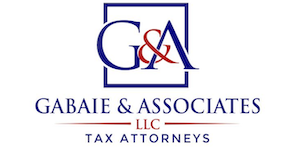Even if you are sure you were upfront and honest in filing your taxes, getting notice of an audit from the Internal Revenue Service (IRS) can be very stressful. The IRS has the authority to hand down financial penalties related to audit problems, including fines and interest. If you were selected for an IRS audit, contact Juda Gabaie at Gabaie & Associates, LLC to understand your rights and how to handle an IRS audit to avoid or reduce any financial penalties.
Audit Penalties for Taxpayers in Maryland
According to the IRS, an audit is an examination of an individual's or organization's accounts and financial information. The audit seeks to review the information to ensure that it is correctly reported according to U.S. tax laws and verify the reported tax amount is correct.
Individuals or organizations can be selected for an audit based on a statistical formula, after an audit involving related taxpayers, or randomly. A statistical analysis of the tax information for a taxpayer may highlight the return for further review.
After the IRS selects a taxpayer to be audited, the taxpayer will be notified by mail. Audits may be conducted by mail or in-person. An audit may include a request for additional information or documents. Tax laws require taxpayers to keep all records used to prepare tax returns for at least three years from the date the tax return was filed.
Your Rights in an IRS Tax Audit
You have rights as a taxpayer when dealing with an IRS tax audit. Your rights include:
- Right to representation, by oneself or an authorized representative;
- Professional and courteous treatment by IRS employees;
- Privacy and confidentiality about tax matters;
- Right to know why the IRS is asking for information, how the IRS will use it, and what will happen if the requested information is not provided; and
- Right to appeal.
The benefit of having representation by an experienced tax attorney is that you have an advocate on your side when dealing with the IRS. Your tax professional will be able to handle IRS document and information requests with minimal disruption to your life. A tax attorney will also keep you advised of your rights and options for the best possible outcome. As soon as you find out about an IRS audit or investigation, contact an experienced Maryland tax attorney.
Audit Outcome Results
If the taxpayer has provided all the requested documentation and substantiated the items to be reviewed, the audit may result in no change for the taxpayer.
If the audit results in changes to your taxes, including additional tax liability, reduced deductions, or additional income, the IRS will propose changes to the tax return. If the taxpayer agrees with the proposed changes, the taxpayer may be asked to sign the examination report and make any payments, as required. If the taxpayer cannot make the payments in full, the IRS may be able to arrange a payment plan.
If the taxpayer does not agree with the audit finding, there are a few options. The taxpayer can request a conference with an IRS manager. The taxpayer can also go through mediation with the IRS to find a mutually acceptable outcome. Alternatively, the taxpayer can file an appeal.
Tax Audit Penalties
The Internal Revenue Code (IRC) provides for interest and penalties for tax audit errors. Any additional taxes that should have been paid when the taxes were due are generally subject to interest. However, other tax code violations may result in penalties, which may depend on the type of errors, whether any reporting errors were intentional, and the extent of the audit errors.
Accuracy-Related Tax Penalties
Under IRC 6662, if the tax audit finds there were problems with the tax return that trigger the imposition of the accuracy-related penalty, the taxpayer may be subject to a 20% penalty of the portion of the underpayment. Accuracy-related penalties may involve:
- Negligence or disregard of rules or regulations.
- Any substantial understatement of income tax.
- Any substantial valuation misstatement under chapter 1.
- Any substantial overstatement of pension liabilities.
- Any substantial estate or gift tax valuation understatement.
- Any disallowance of claimed tax benefits by reason of a transaction lacking economic substance (within the meaning of section 7701(o)) or failing to meet the requirements of any similar rule of law.
- Any undisclosed foreign financial asset understatement.
- Any inconsistent estate basis.
Tax Fraud Penalties
Under IRC 6663, if any underpayment on a return is due to fraud, the taxpayer may be subject to a penalty equal to 75% of the portion of the underpayment attributed to fraud.
In most IRS audits, the IRS will only go back three (3) years after the tax returns are filed. However, in cases of tax fraud, there is no statute of limitations on civil penalties. The IRS can go as far back as the taxpayers first filed a return for auditing, tax penalties, and interest.
Maryland Tax Attorney
Contact Juda Gabaie at Gabaie & Associates, LLC online for a free consultation or call (410) 862-2198 for help with your IRS or Maryland tax issues.
